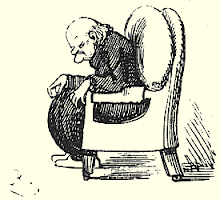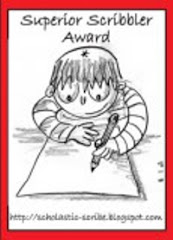*Ahem*
(They all turn around in their chairs and look at him.)
"What kind of bird are you?"
(Pause.)
"I'm a sparrow. She's a dove--"
"No-- what kind of bird
(beat) are
you?"
----------------------------
I've seen the trailer maybe twenty or so times. Maybe I have Aspergers-- maybe I'm just in love. I don't know. In any case, I've been waiting for a long, long time. I had plans to drive up to New York City to see it two weeks ago, but it just didn't happen. I'm not as impetuous, or as quixotic, or as liberated as I used to be.
Twins'll do that to a guy, you know.
Because I wasn't alive in the late 19th century, I'll never know the thrill of hearing that "a new operetta by Gilbert & Sullivan" is premiering at the Savoy, or is coming to New York. I'll never get to hear the scuttlebutt or the gossip about the costumes or the sets, and I'll never get to see the sheet music for "The Law is the True Embodiment" when it was brand new. That would have been it for me.
So, because I live in this place and this time and in this century, the release of a new Wes Anderson movie is, I suppose, as close as I'll ever get to that feeling. And now, at long last, "Moonrise Kingdom" is rising at a theatre near me.
Which is good, because I'm damn tired of waiting.
When I read a little review of "Rushmore" all those years ago, one reviewer called it "A love letter to the misfits of the world." I didn't need to read any more of that review to know that I needed to see this film. I couldn't have known that, as Max Fisher danced with Miss Cross to the clanking chords of The Faces' "Ooh La La" that I'd be in tears. I couldn't have known that I would have a fight with my allergist about the ending of that movie, that he argued that the film shouldn't have ended happily for Max-- that, because the movie ended how he wanted, he never learned anything, he never grew as a character. I argued that Max did learn and Max did grow, but that the film ended how
he would have ended it if
he'd written it.
What kind of bird is
he?
It's funny, being drawn to films about people whose family dynamics are completely fucked up. You'd think it's how I must have grown up-- surrounded by eccentric people who possessed an uncanny inability to communicate anything resembling affection-- but I didn't. My upbringing was mundane and regular and safe and surrounded by love. We were not without our problems, but we weren't Tenenbaums, and we never wanted to be.
Wes Anderson films are more than the sum of the camera angles, the flat presentation of the characters, the shirt and tie combos (in "Rushmore", Herman Blume wore monochromatic shirt-and-tie combinations-- all yellow, all blue, etc, and in "Royal Tenenbaums", Royal favored hues of purples and green stripes-- effeminate choices for such a, well, bastard) or the chic, carefully selected eyeglasses or the indie-cool, carefully selected soundtracks. It's not the charming, pizzicato tinklings of Mark Mothersbaugh or, now, Alexander Desplat. It's not the many, many details.
I think it's the sad sincerity of even the most insincere characters. It's their unabashed presentation, it's the way in which they plod through life, saying awful things with a great innocence. They're telling the truth even when they're lying through their teeth.
And I guess I like that. I guess I'm like that, too. Even though I wish I wasn't.
I suppose I keep coming back to these films because they're some kind of mirror, albeit a distorted one, with cooler clothes, of who I am and I think that, if I watch enough times, if I step aboard the Darjeeling, Ltd one more time, if I close my eyes and listen to the words and the music and the pauses, maybe one day I'll figure out what kind of bird am I.





